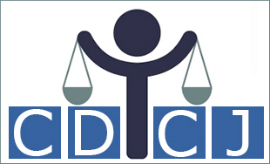European Court of Human Rights case Morice C. v France, April 2015 on the Freedom of Expression of a Lawyer; ECHR case Moulin v. France 23 November 2010-confidentiality and professional secrecy; ECHR Case Mancevschi v. Moldova of 7 October 2013;
The Consultative Council for European Judges in its Opinion No 16 (2013) considers that the “relations between judges and lawyers should be based on the mutual understanding of each other’s role, on mutual respect and on independence vis-à-vis each other.” Consultative Council of European Judges (CCJE) further “recommends the development of dialogues and exchanges between judges and lawyers at an institutional level (both national and international) on the issue of their mutual relations, whilst taking full account of the ethical principles of both lawyers and judges”.
Recommendation Rec (2000) 21 of the Committee of Ministers of the Council of Europe on the freedom of exercise of the profession of lawyer highlights the role of Bars and other associations in drawing up professional standards, in ensuring professionalism of lawyers by providing in-service/initial training.
Recommendation Rec (81) 7 of the Committee of Ministers of the Council of Europe on measures facilitating access to justice: “No litigant should be prevented from being assisted by a lawyer. The compulsory recourse of a party to the services of an unnecessary plurality of lawyers for the need of a particular case is to be avoided. Where, having regard to the nature of the matter involved, it would be desirable, in order to facilitate access to justice, for an individual to put his own case before the courts, then representation by a lawyer should not be compulsory.”
Recommendation of the Parliamentary Assembly of the Council of Europe No. 21221 (2018) “The case for drafting a European convention on the profession of lawyer”. The Recommendation underlines: “… the specific role of lawyers gives them a central position in the administration of justice, as protagonists and intermediaries between the public and the courts. They play a key role in ensuring that the courts, whose mission is fundamental in a State based on the rule of law, enjoy public confidence. For members of the public to have confidence in the administration of justice they must have confidence in the ability of lawyers to provide effective representation.”
The Georgian Bar Association (GBA) was established in 2005. GBA is the only professional union for lawyers (advocates) in Georgia that is responsible for licensing, disciplining and ensuring quality of legal representations. Currently GBA unites almost 5,300 active advocates and the number is permanently increasing. Those candidates that have passed an GBA's entrance examination and successfully accomplished the professional adaptation programme are admitted to the Bar by the Executive Board.
The quality of justice depends on the work done by the lawyer, as reflected in the right to a fair trial and reasonable time (Art.6 of the European Convention on Human Rights). In 2013 the CCJE prepared an Opinion on the relations between judges and lawyers with a view to the better quality and efficiency of justice. Principle III.4 of the Council of Europe Recommendation Rec(2000)21 of the CM to member states on the freedom of exercise of the profession of lawyer provides that lawyers should respect the judiciary and carry out their duties towards the court in a manner consistent with domestic legal and other rules and professional standards.
GBA member-lawyers elected the new Chair, Executive Council and Ethics Commission members on 23 December 2017. This was followed by changing the GBA internal structure, number and composition of its Committees and Training Centre leadership. The election process was followed by internal disturbances questioning the legitimacy of the voting procedure due to some alleged violations during the chair’s elections; this demonstrated the gaps and discrepancies GBA internal regulations include when it comes to electing its governing body members. This proposal includes measures to identify and eradicate these gaps in order to ensure 2021 elections proceed in a more peaceful environment.
The Consultative Council of European Judges notes in its Opinion No. 16 (2013) that the judiciary should maintain working relations with the professionals whose tasks are related to the work of judges, in order to facilitate an effective and efficient administration of justice. The CCJE is of the opinion that constructive relations between judges and lawyers will improve the quality and efficiency of proceedings. Hence, two aspects of judge-lawyer relationship can be distinguished here: procedural interaction and mutual respect.
The Judge-lawyer relation has recently been challenged by the individual, personal complaints from both professions. High Council of Justice judge-member has been complaining via social media about the Georgian Bar Association’s open positioning on Supreme Court judges’ appointment process. On the other hand, individual members of the GBA do not shy away from openly criticising sitting judges for certain court decisions.
Improving the professional relations between lawyers and the judiciary is of imperative importance for the efficient and effective functioning of the justice system in Georgia. Improved professional relations between lawyers and other justice sector actors would also contribute to an enhanced functioning of the justice system.



